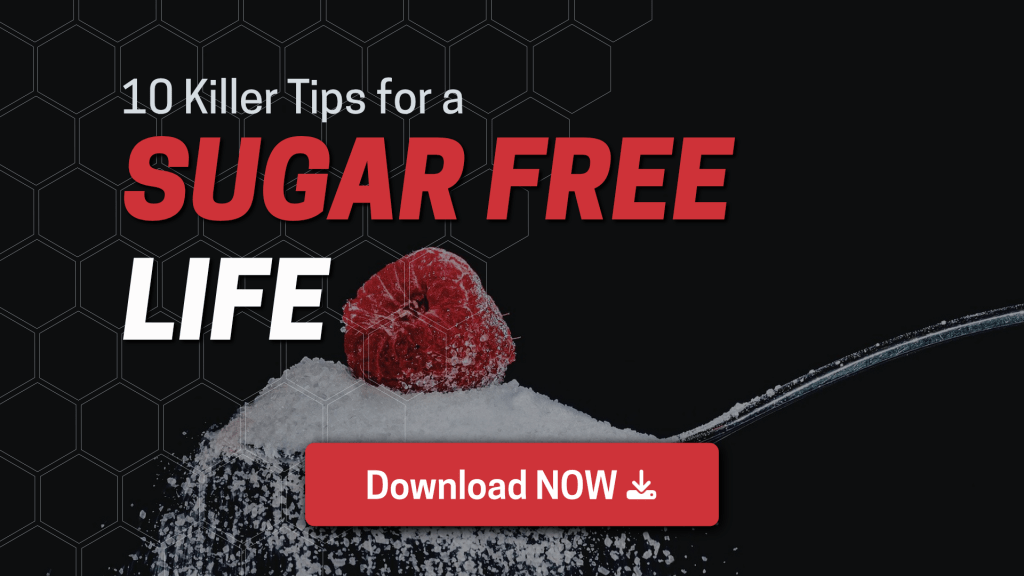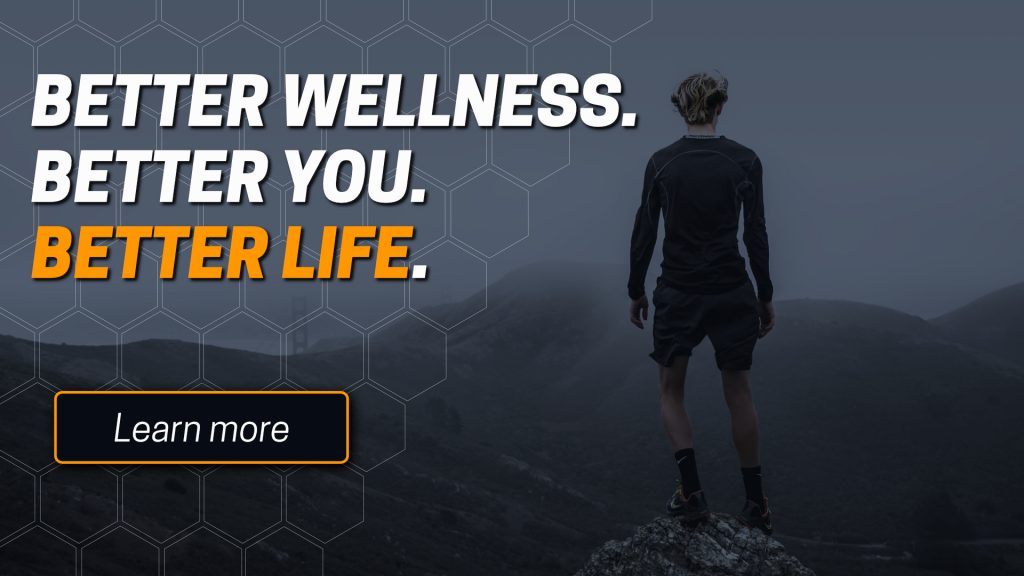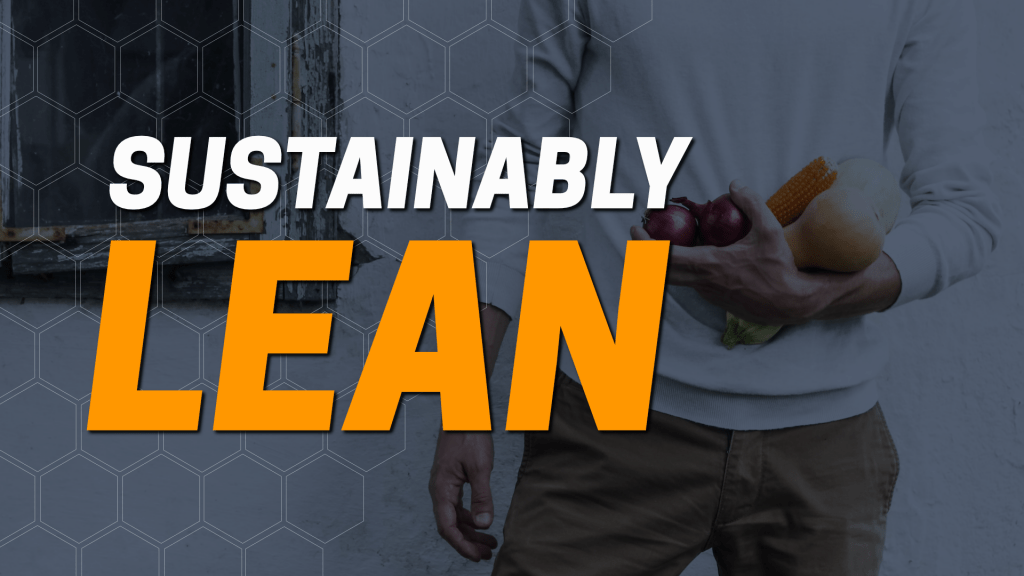Today at a Glance
- Growth doesn't happen in your comfort zone. Not in fitness. Not in health. Not in life.
- What is Progressive Overload
- Why Progressive Overload is important
- 8 Ways to apply Progressive Overload for Fitness, Health, and Life

Growth doesn’t happen in your comfort zone. Not in fitness. Not in health. Not in life.
To level up, you gotta give yourself a little nudge — even if it’s just a tiny push. Each small leap molds a stronger version of you. By pushing your limits, you shape a mindset of endless possibilities, smashing through the “I can’t” walls and building up that “I can” attitude.
This philosophy is called: Progressive Overload.
"The man who moves a mountain begins by carrying away small stones."
— Confucius
What is Progressive Overload
The principle of progressive overload is a fundamental concept in exercise science and strength training. We use a gradual increase of stress placed on the body and nervous system over time.
Those who use it intentionally evolve. Those who don’t stay stagnant.
Let it be physical fitness, strength, or endurance. Let it be vigorous energy, vitality, or agility. Let it be focus, productivity, or joy.
The key components of progressive overload include:
- Intensity: Gradually increasing the resistance you work against.
- Frequency: Gradually increasing the number of sessions per week.
- Volume: Increasing the total workload by performing more repetitions.
- Duration: Extending the duration of your sessions over time.
From short to long. From easy to difficult. From simple to complex.
Why Progressive Overload is important
The principle of progressive overload is crucial for preventing plateaus so that we continuously get better. We adapt and evolve.
Simply put, if we want to get really good at something we have to do it a lot.
On a physical level, when the body is exposed to increased stress through progressive overload, it responds by becoming stronger, more resilient, and better adapted to the demands placed upon it.
The same goes for the mental and emotional level.
Progressive overload is not only a fitness philosophy. It’s also a philosophy for life.
Here are a few examples of how this works:
- Progressive overload is a key factor in promoting muscle hypertrophy (growth) and strength gains. When you continually challenge your muscles by lifting heavier weights or increasing resistance, the body responds by adapting and building more muscle fibers.
- The human body and brain are adaptive and efficient. Over time, they become accustomed to a particular level of stress. This mechanism works in our favor when we apply stress in a controlled and structured manner. It’s why so many purpose-driven optimizers today swear on cold and heat exposure, exercise, and mindfulness.
- In fitness as in life progressively challenging tasks enhance mental resilience and discipline. Growing beyond a certain comfort zone fosters a positive mindset and determination, which then rubs of to other areas of life.
Now that you know what it is and why it’s important, let’s get to the real meat: how to benefit from progressive overload in fitness, health, and life.
8 Ways to apply Progressive Overload for Fitness, Health, and Life
Applying the principle of progressive overload to fitness, health, and life requires a systematic and intentional approach to continuous improvement.
Here are some guidelines for applying the progressive overload principle:
Fitness:
1) Strength Training:
- Gradually add more weight or resistance to exercises as your strength improves.
- Increase the number of reps and sets to challenge your muscles further.
- Advance to more complex or challenging exercises over time.
2) Cardiovascular Exercise:
- Gradually raise the intensity of your cardio workouts by increasing speed, resistance, or incline.
- Hiking, running, biking, swimming are all different. Do what you find most joyful.
- Increase the duration of your workouts over time.
3) Flexibility and Mobility:
- Hold stretches for longer durations.
- Alternate engagement and relaxation periods.
- Incorporate more challenging yoga poses or mobility exercises.
Health:
4)Nutrition:
- Make small, sustainable changes to your diet over time. Cut sugar first.
- Gradually incorporate more nutrient-dense foods into your meals.
- Practice portion control to manage caloric intake.
5) Sleep:
- Improve sleep hygiene by establishing a consistent sleep schedule and creating a conducive wind down routine.
- Aim to gradually increase the duration of your sleep to meet the 7-9h window.
6) Stress Management:
- We use progressive muscle relaxation, slow deep breathing, or meditation to calm the nervous system.
- Progressively increase self-awareness to identify and address the various sources of stress in your life.
Life:
7) Skill Development:
- Develop a mindset of lifelong learning. What skills do you want to learn? Could be for professional use or just for fun.
- Take small steps towards your career goals or start a side hustle to explore new opportunities.
8) Relationships:
- Communication is the fundament on which healthy, loving relationships are built upon. I recommend: Non-violent communication by Marshall D. Rosenberg.
- Invest time and effort progressively in building and strengthening meaningful connections. If you lost touch to your spouse, kids, or family, gradually reestablish it
Remember, the progressive overload philosophy isn’t a short cut. The key is to make gradual and sustainable changes while staying committed to your long-term goals.
Our goal is to build, live, and enjoy a high-impact life where we help others grow and contribute to a sustainably healthier planet earth.
It will take time to get to this point. Be okay with that.
That’s it for today.
Hope you enjoyed it (and learned something new).
What’s going on in our world
Mindset matters when we talk about Physical Fitness.
Markus Journey to explore his cure for the injury led him to unveil the power of mind over muscle. In this podcast with Ambreen Nadeem he shared his inspiring journey and highlighted the importance of holistic well-being.
There’s an inseparable link between mind and muscle. And it has a transformative impact that only a holistic approach to wellness can have.
Mindful movement can not only strengthened the physical body but also energize and enhance mental agility.
Listen to the full episode on
Apple Podcast, Spotify, Google podcast, and YouTube.

As always, stay fit, stay active, and enjoy your life.
Ketty & Markus








